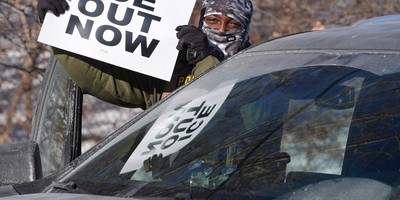On Memorial Day, our nation celebrates brave men and women who have served in defense of our freedoms. We waive the stars and stripes as we thank those who honorably saluted it. Charles Clark, who was the oldest living confirmed veteran in the United States, waited until the sun set on Memorial Day to transition out of this life. It is because of him that I learned that the biggest heroes are often the simplest of men.
Charles “Charlie” Clark was born in Hamilton, Virginia in 1907. Hamilton still bears the quaint charm of the old south. It was the type of place where you met your future spouse in grade school, where the pastor at the church eats several home cooked Sunday dinners. Charlie was born to a humble farmer and domestic servant mother and was one of seven children.
Despite their humility, his mother was one of the first women to register to vote and his father was a well respected community leader. His roots in Loudon County were deep. His family tree is an impressive mix of slaves and free men during the antebellum period.
Charlie was drafted into the Army and deployed to fight in World War II shortly after the infamous invasion of Normandy. His unit was the segregated 3238 Quartermaster Service Company of the 9th armored division and was part of the “Red Ball Express.” Black soldiers were not permitted to fight on the frontlines. However, the Red Ball Express provided food, supplies and ammunition to the men on the frontlines and was a dangerous job. He also guarded German prisoners during the war. Though he didn’t recount experiencing ill-treatment, the irony of fighting a war overseas for freedom while he could not use the same restroom as a white man in his hometown was not lost on him. He did talk about being told not to get too close to the front while white soldiers were being served food.
Recommended
I never knew Charlie the soldier. I knew Uncle Charlie, my great grandmother’s brother. I knew the former barber, insurance salesman, and school bus driver who always had a smile on his face. On one occasion, he pulled his school bus up to a small group of white children after the end of segregation in Virginia. The children stared at a Black driver and did not get on. So, Charlie calmly closed the door and drove off. The next day the kids got on the bus. I’m certain he taught them an important lesson: that progress stops for no one. It was with that optimism that he lived his life. He always had a positive outlook and refused to let negativity stall him.
Uncle Charlie was always healthy and looked at least 15 years younger than his actual age. A doctor gave him a physical once and exclaimed, “you’re going to live to be 100!” That doctor’s prediction was correct, but still short almost 9 full years. When he turned 100, he was given the key to the city in Purcellville, Virginia. The mayor joked that it was good for one speeding ticket. Charlie was still driving at the time.
Charlie was always very health conscious. He got his exercise by gardening and watched what he ate and ate things in moderation. My father tells a story of sitting at a table with several men, Uncle Charlie being the most senior of them, at around 90 years old. Before people touted the health benefits of a Mediterranean diet, Uncle Charlie sat picking at a bowl of black olives while others ate typical rich southern soul food delicacies like macaroni and cheese, potato salad, and thick slices of ham. Finally, someone asked him about his choice of black olives, to which he responded: “they improve your sexual performance.”
His longevity was a result of more than his careful eating and active lifestyle. Charlie smiled. He didn’t worry about his age or increasing frailty. He didn’t stress out over money or jobs. His mind was sharp until the day he passed because he didn’t subject it to anger or envy. He recognized that happiness lies in simplicity and enjoying the life you live. He loved fishing, baseball, and an occasional visit to the horse races. There was only one time I ever saw Uncle Charlie with a look of dismay on his face. Our family has a burial ground that has our ancestors dating back to the colonial period. There rests Charlie’s wife Clarissa and his only son Charles, both of whom passed decades ago. I walked over to him and with a frowned face he said, “that was my son.” He stared at his wife’s tombstone for a long period of time. Next to it, was a tombstone that read “Charles Clark, 1907- ." I couldn’t imagine the bravery it took to look at his own grave. One of the great mysteries of my life is what emotion he was feeling at that moment.
In 2012, Uncle Charlie received a medal for his military service which was presented by President Obama. I know Charlie was honored to have this nation’s first African-American commander in chief present him with such an honor. However, I hope the admiration was mutual. Without extraordinary common folk like Charles Clark, there would be no Barack Obama. Charlie survived so Barack could thrive. While our nation should continue to celebrate all veterans, any truly patriotic American should take the time to think of the people who suffered indignities while in uniform. Charlie is an inspiration but he won’t be buried at Arlington. He will be interned in a simple burial ground in Lincoln that contains both his ancestors and progeny. Charlie has reminded me, while I am an ambitious person, that a simplistic approach to life is not only healthy, it’s heroic.

























Join the conversation as a VIP Member